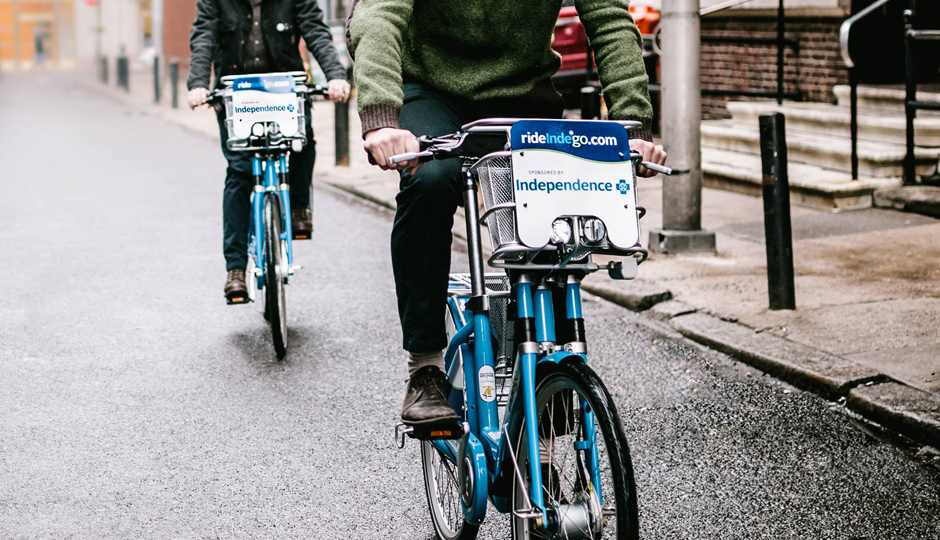How Can Bike-Share Do a Better Job Reaching the Poor?

Photo via Indego
From June 22nd to 24th, professionals who specialize in bikes, transportation and social justice will gather at the Cira Centre for the first-ever Better Bike Sharing Conference. The idea is to get like-minded thinkers together to discuss how to make bike-share more accessible for low-income families.
The conference is hosted by many of the major players in the bike-sharing world: PeopleForBikes, the Bicycle Coalition of Greater Philadelphia, the National Association of City Transportation Officials, and the city government.
“The conference will help stakeholders understand how transportation in general and bike-share in particular fits in the context of broader community needs such as access to jobs, better health and reducing violence,” PeopleForBikes wrote in a statement.
“In North America, 2013 was the year of bike-sharing. Now, we are working to make 2015 the year of equitable bike-share,” wrote April Corbin of PeopleForBikes last year in an article for the National Association of City Transportation Officials. “Report after report has shown that the demographics of users do not reflect the cities overall. Members are disproportionately white and affluent.”
Philly’s Indego bike-share program, which launched last year, was designed with accessibility for underserved communities in mind. Carniesha Kwashie, the Better Bike Share Grant Manager for the Mayor’s Fund for Philadelphia, said that Philly did this in a few different ways: Unlike bike-share programs in other cities, she said, Indego offered a cash payment option and placed stations in low-income neighborhoods.
In May of 2015, almost a month after Philly’s bike-share system got started, Temple University conducted a study in collaboration with the Better Bike Share Partnership to analyze the use of bike-share in impoverished areas. They interviewed 530 people at 17 stations located in low-income neighborhoods. They reported that only 14 percent of interviewees had used bike-share, and just 3 percent were members. However, 73 percent said they planned to use Indego in the future.
The top three reasons for not using Indego were not having information or having misinformation about how it operated, simply not having had a chance to ride yet, and cost restrictions. Ten percent of respondents said they already owned bikes. Interviewees said their main methods of transportation were taking the bus, walking, and using the subway or trolley.
The city is expected to release demographic data for the bike-share program as part of an annual report sometime around Indego’s one-year anniversary in April.
Officials said Philly was chosen to host the first Better Bike Share Conference because of its efforts to make bike-sharing accessible. So far, the Better Bike Share Partnership has awarded almost $375,000 in grants towards increasing bike accessibility.
Despite the conference’s topic of equity, tickets to attend are on the pricier side. “Early bird” tickets are currently available for $360, while regular tickets will go on sale May 5 for $410.